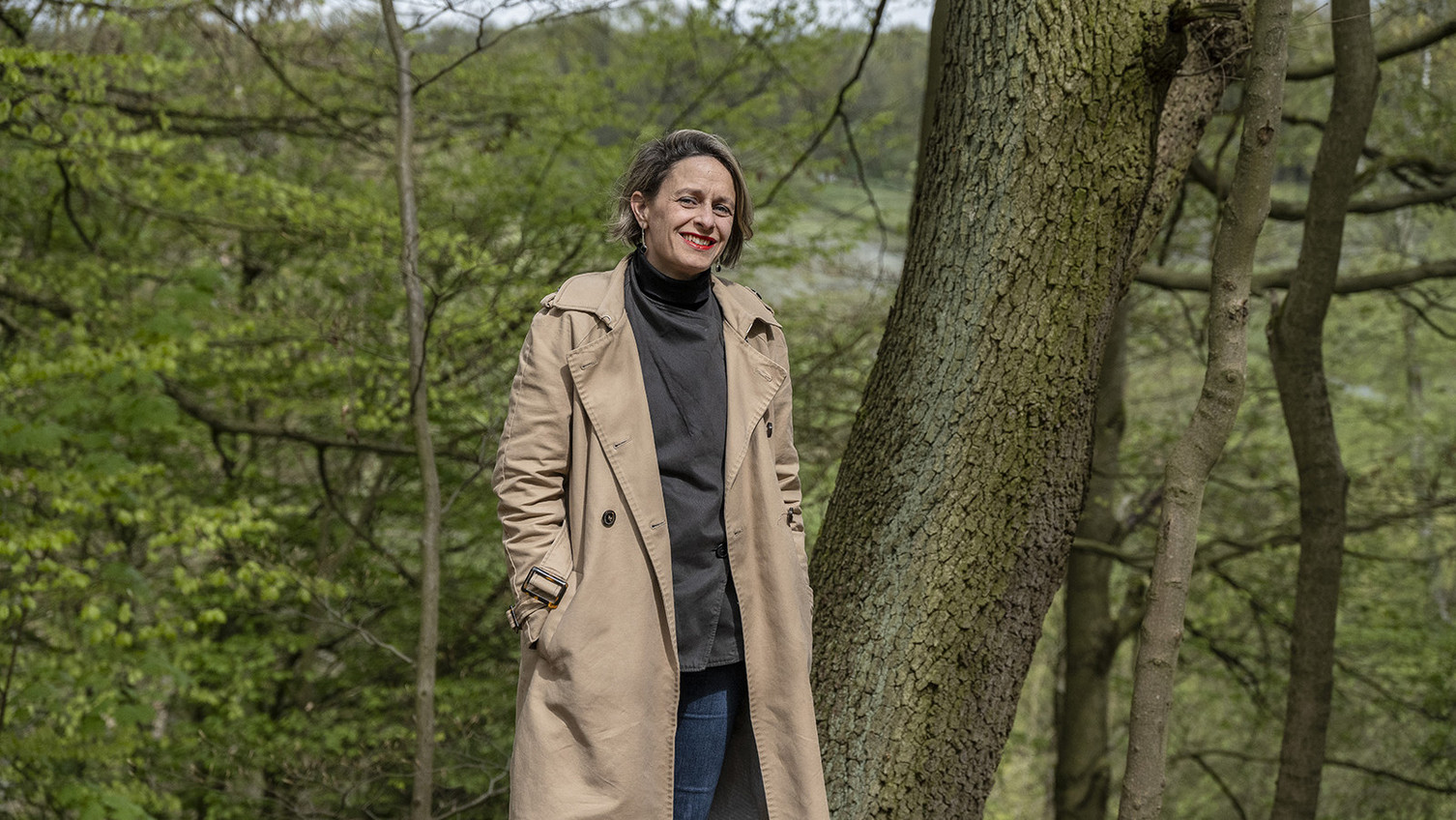Fellow 2024/25
Maud Meyzaud's current research examines narratives of (European) Enlightenment and secularisation as well as cross-culturally entangled histories of exile and diaspora between Europe and Latin America in the period of the Second World War by decentring traditional key concepts such as 'Western secularism', 'European enlightenment' and 'cosmopolitanism'.
Specifically, she has recently been researching Jewish-Latin American networks resulting from forced migration in the 1930s to 1950s and is currently studying the unique intellectual dynamics of the Caribbean diaspora in the 1930s and 1940s.
Her research areas range from poetics of revolution and the people to practices of historiography in the 19th century as well as literature and pauperism, and the theory of the novel. She has received numerous grants and fellowships, and her lectures have been invited by universities, art and theatre festivals and art institutions. Meyzaud teaches comparative literature and German literature.
She has held the Heisenberg Professorship for German and Comparative Literature at Leuphana University Lüneburg since 2025.
Abstract
Caribbean Sketches of an Entangled World (1929-1949)
Drawing on different practices of diasporic Caribbean theorists and artists in the 1930s and 1940s I argue that many current debates and some of the most difficult epistemological questions of our present can be traced back to the collective efforts made by the members of this first transatlantic Caribbean diaspora. The Nardal sisters and Aimé Césaire from Martinique, Jacques Roumain from Haiti, Alejo Carpentier from Cuba, and C.L.R. James from Trinidad built networks in Paris, London, New York, Mexico, Havanna, Fort-de-France, and Port-au-Prince, and participated in the socialist movements, surrealist and Harlem Renaissance circles, and ethnographical research of the period. Following Édouard Glissant, Michel-Rolph Trouillot and others, I argue that the Caribbean was both a place that provided a ‘laboratory’ for the acceleration of the modernization process and a place where resistance to the Western project eventually gave birth to exceptional (trans-)cultural phenomena, from the creation of creole languages and the communities of the maroons to the political revolution of slaves and the first Black Republic in Haiti. I propose that this is precisely, from the early 1930s onward, what made it possible for it to also become the place where the contradictions of Western modernity and its entanglements with other histories and forms of life could be best revealed and alternative modernities envisioned.
Education
2020 Habilitation Comparative Literature and German Literature, Goethe University Frankfurt
2009 PhD Department of Literature, University of Constance
2001 MA Advanced Studies in Philosophy, Marc Bloch University of Strasbourg,
Most Recent Academic Positions
Acting Professor Deutsche Literaturwissenschaft, Ludwig-Maximilians-Universität Munich
Most Recent Publications
“Flucht und lateinamerikanische Konvivenz. Anatol Rosenfelds deutsch(-jüdisch)e Brasilkunde.” In Undercurrents 19 (2025): Mitstreiten. Literarische Solidarität und anti-rassistische Verbündungen.
“An Arab Predecessor to Western (Trans-)Secular Thought. The European Enlightenment’s Encounters with Ibn Tufayl and the Islamic Enlightenment.” Political Theology (2024): 1–17.
with Nathan Taylor, eds. “Flight and Interconnection: On the Formation of an ‘Unsteady’ Archive of Literature.” Special issue, Sprache und Literatur 53, no. 1 (2024). Paderborn: Brill | Fink.

